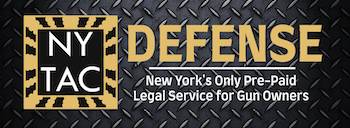Representation.
New York Penal Law § 140.25 – Burglary in the Second Degree
Experienced NY Criminal Defense Lawyers Defending Clients Facing Serious Theft and Property Crimes
Burglary in the Second Degree is a crime that provides enhanced penalties for certain burglary offenses, including those involving the burglary of a home and other dwellings. Burglary in the Second Degree is also used to prosecute those who use a weapon or something that appears to be a gun, cause injuries, or make threats during the course of the offense. Burglary in the Second Degree is a Class C felony.
The Elements of Burglary in the Second Degree
Before a judge or jury can convict anyone of Burglary in the Second Degree, the government must prove each element of the offense beyond a reasonable doubt. The elements of Burglary in the Second Degree are:
- The defendant unlawfully entered or remained in a building;
- The defendant knew they were not authorized to enter or remain in the building;
- The defendant did so with the intent to commit a crime inside the building; and
- The building was a dwelling, or
- When gaining entry, inside the building, or while fleeing from the building, the defendant,
- Was armed with a deadly weapon or explosives;
- Causes injury to someone who was not a part of the crime;
- Uses or threatens to use a dangerous instrument; or
- Displays something that appears to be a gun.
Examples of Burglary in the Second Degree
Some of the most common examples of Burglary in the Second Degree include the following:
- A defendant enters a residence without permission, intending to assault a resident of the home;
- A defendant gains unauthorized access to a closed business in hopes of committing a theft by threatening a security guard; and
- A defendant uses a hammer to break the window of a motorhome, intending to steal something inside the motorhome.
Related Offenses to NY Penal Law § 140.25
Often, prosecutors bring Burglary in the Second Degree charges along with one or more other crimes. In most situations, prosecutors will at least charge a defendant with burglary and the crime they intended to commit, for example, theft, assault, murder, robbery, or a sex crime.
However, the following offenses are related crimes to the crime of burglary itself:
- Trespass – NY Penal Law § 140.05
- Criminal Trespass in the Third Degree – NY Penal Law § 140.10
- Criminal Trespass in the Second Degree – NY Penal Law § 140.15
- Criminal Trespass in the First Degree – NY Penal Law § 140.17
- Burglary in the Third Degree – NY Penal Law § 140.20
- Burglary in the First Degree – NY Penal Law § 140.30
- Possession of Burglar’s Tools – NY Penal Law § 140.35
What Are the Defenses to Burglary in the Second Degree?
There are several defenses to Burglary in the Second Degree. A successful defense can either reduce your sentencing exposure, result in the prosecution withdrawing the case against you or raise a reasonable doubt in the jury’s mind. The most common defenses include the following:
- The prosecution presented insufficient evidence that you intended to commit a crime other than trespassing;
- You had the owner’s permission to enter or remain in the building;
- You legitimately thought you had permission to enter or remain in the building;
- You were not armed with a deadly weapon or dangerous instrument; or
- The building was not a dwelling.
It is important to note that prosecutors do not need to successfully prove you committed the underlying offense for you to be convicted of burglary. In other words, you may still be guilty of burglary even if they cannot establish you committed or attempted to a crime while inside, provided there is sufficient evidence you intended to commit a crime while inside the building.
What Are the Penalties for Violating NY Penal Law § 140.25?
Burglary in the Second Degree is considered a Class C felony. In New York, all Class C felony offenses are punishable by a maximum sentence of up to 15 years in jail and a fine of up to $15,000.
Discuss Your Case with an Experienced New York Burglary Lawyer
If you have been charged with a New York burglary offense, there is a tremendous amount at stake, and you deserve a lawyer who will take your case as seriously as you do. At Tilem & Associates, P.C., our experienced New York criminal defense lawyers have decades of experience defending the rights and freedoms of clients charged with all types of serious property crimes, including Burglary in the Second Degree. We are immediately available to meet with you to get started working on a compelling defense to the charges you face. To learn more, and to schedule a free consultation today, call 877-377-8666. You can also reach us through our online contact form.

















